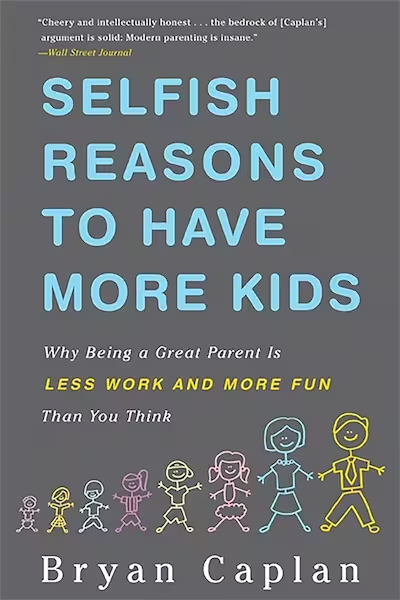Timothy Rice
Selfish Reasons to Have More Kids
If every other parent jumped off a bridge, would you?

Rating: 3/5 – Good introduction to behavioral genetics and parenting statistics.
I probably would have liked this book more if it was my first exposure to the field of behavioral genetics, but having already read Judith Rich Harris much of the content in Selfish Reasons was a re-tread for me. This isn’t to say that Caplan doesn’t make good points (he does!), just that most of them seemed obvious to me. Additionally, his writing style is a bit clumsy, seeking to overwhelm the reader with a torrent of statistics and scientific findings, which makes sense given his background in economic academia.
That being said, I do agree with the basic premise of the book, that parents make their jobs much harder than they need to. It is still a little unclear to me why we do this as parents, and I found Caplan’s answers to that question mostly unsatisfying. I’d love to read more about the history of parenting in the last 100 years, and why it’s changed as much as it has. What I’ve read so far on the topic has only addressed this question obliquely.
I also thought Caplan made a strong point about what parents can do for their kids: namely, they can give them pleasant childhood memories. This is a question that I think the advocates of behavioral genetics do a poor job addressing, and while I enjoyed Caplan’s answer, I would like to see it expanded upon even more. I am beginning to suspect this will have to be new material that I produce.
If behavioral genetics is something new to you, or you feel completely overwhelmed by the demands of modern parenting, or what to have more kids but don’t feel like you can, read this book. If you’re already on team big family and side with Nature in the Nature v. Nurture debates, it’s unlikely you’ll come across anything new or compelling in this book.
Selfish Reasons to Have More Kids on Amazon
Selfish Reasons to Have More Kids on Goodreads
My Goodreads Profile